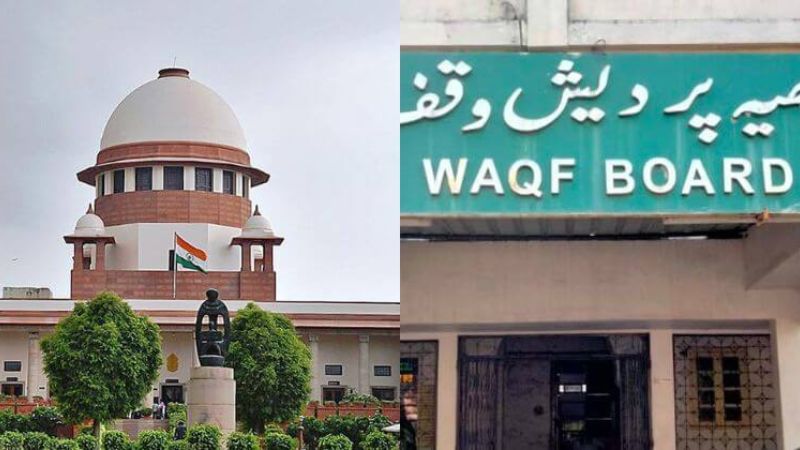
The Narendra Modi government is likely to introduce a bill on August 5, during the Parliament’s Monsoon Session, to amend the powers of the Waqf Board. The Modi Cabinet approved 40 amendments on the Waqf Act on August 2. If these amendments are adopted, they will change the structure and powers of the Waqf Board considerably limiting its power.

Possible Major Changes To The Waqf Board:
The bill introducing amendments to the Waqf Act may have some key provisions as follows:
No land can be declared as Waqf property before verification.
There will be a complete overhaul in the board structure including mandatory participation of women.
Management of Waqf board property may come under monitoring by the District Magistrate.
Substantial changes in the Waqf Act are being planned by the Narendra Modi government. The previous Manmohan Singh government had significantly empowered this very Board which has been one of the points of focus for the Modi Administration since its second term began.
#WATCH | On Government to introduce Waqf Act Amendment Bill in Lok Sabha today, Indian Union Muslim League (IUML) MP ET Muhammed Basheer says, \”It is going to be tabled today and we will surely oppose it vehemently. I think everybody is united in this… I feel that some of them… pic.twitter.com/T1oxMovgHs
— ANI (@ANI) August 8, 2024
What Is The Waqf Board?
Wakaf means “endowment” in Arabic and refers specifically to properties given for charitable purposes in Allah’s name (God). It manages such properties where vast rights and assets belong to it. It ensures that donated movable/immovable assets are utilized appropriately according to Islamic principles like mosques, education, or other religious activities.
Formation And Purpose Of The Wakaf Board:
During Jawaharlal Nehru’s regime, this act came into force in 1954 followed by the Central Wakaf Council establishment under the Ministry of Minority Affairs in 1964 through statutory body formation. A central minister heads it, and not more than twenty members have been appointed by the Indian government.
After the military and railways, the Waqf board possesses the country’s largest property. Its purpose was welfare enhancement among Muslim communities leading to their social status improvement but despite all these resources still remains unanswered why does the Muslim community stay backward?
Reactions To Proposed Amendments:
Imam Sajid Rashidi: Imam Rashidi expressed disappointment over Iranian authorities’ interventionist attitude towards Islamic law concerning waqfs during an international conference held at New Delhi’s All India Institute Of Medical Sciences (AIIMS) last month While addressing reporters later he stated “We regard ourselves as guardians rather than owners.” He further added that if only one person can control us then it should be someone who knows about our religion better than anybody else – i.e., God himself! According to him political motives behind the proposed increase in female participation were wrong because donations made by Muslims should have gone back into hands so that vast wealth could have been used wisely without interfering politics involved.
Rashid Kidwai: Political analyst Rashid Kidwai feels amendments aimed at addressing issues within Waqf Act are acceptable but politically motivated amendments won’t do any good to him although he believes use has been inadequate despite huge amounts available past attempts failed reform board didn’t work well enough increasing female involvement would make much difference either way
Maulana Tahzeeb: Maulana Tahzeeb supports the amendment provided they ensure protection/proper usage of waqf assets where he suggests using funds to build schools colleges all communities prevent misuse chairpersons who run boards
Tajwar Izhar, Professor: At Birsa Agricultural College, Professor Tajwar Izhar believes that including women on the Waqf Board will boost their standing and provide for them economically. According to her, this amendment should not be resisted since it deals with women’s concerns in the company.




Leave a Reply